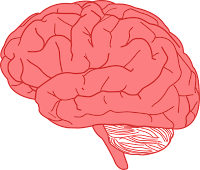A large-scale U.S. study just uncovered something unexpected: taxi and ambulance drivers are significantly less likely to die from Alzheimer’s disease than people in other professions. What’s going on—and could your job help protect your brain?
The Study: A Surprising Pattern in Death Certificates
Researchers from Harvard and Rutgers analyzed nearly 9 million U.S. death certificates, looking for patterns in the causes of death by occupation. The striking result? Taxi drivers and ambulance drivers were far less likely to have Alzheimer’s disease listed as a cause of death than the general population.
Specifically, Alzheimer’s was responsible for just 0.91% of deaths among taxi drivers and 1.03% among ambulance drivers, compared to significantly higher rates in other professions—over 40% lower than average. This finding held even after adjusting for age, gender, education, and race.
Why These Drivers Might Have an Edge
So what makes driving a cab or ambulance so brain-friendly? The leading theory revolves around spatial navigation—a skill deeply tied to the hippocampus, the part of the brain responsible for memory and one of the first regions to deteriorate in Alzheimer’s disease.
Previous studies have already shown that London taxi drivers—who famously memorize an intricate city layout called “The Knowledge”—develop a larger hippocampus than most people. It’s possible that the real-time, ground-level navigation required in these professions provides the brain with continuous, meaningful challenges that keep it resilient.
Why Pilots and Captains Don’t See the Same Benefit
Interestingly, other navigation-heavy occupations like pilots, ship captains, or heavy machinery operators did not show the same protective effect. Researchers speculate that this could be due to the more automated or less dynamic navigation systems used in those professions.
In contrast, taxi and ambulance drivers constantly respond to changing environments, landmarks, traffic, and unexpected detours—demands that require flexible, adaptive spatial reasoning. That “cognitive workout” might be exactly what keeps the hippocampus healthy longer.
Rethinking Brain Health in Everyday Life
While this study doesn’t prove that driving these vehicles prevents Alzheimer’s, it does open the door to some intriguing ideas: Could jobs or hobbies that challenge your navigation skills help protect your brain? Could walking unfamiliar neighborhoods, playing orienteering games, or doing map-based puzzles offer similar benefits?
It’s too soon to say for sure, but it’s clear that how we use our brains every day—especially in navigation and memory—could play a bigger role in cognitive aging than we once thought.











